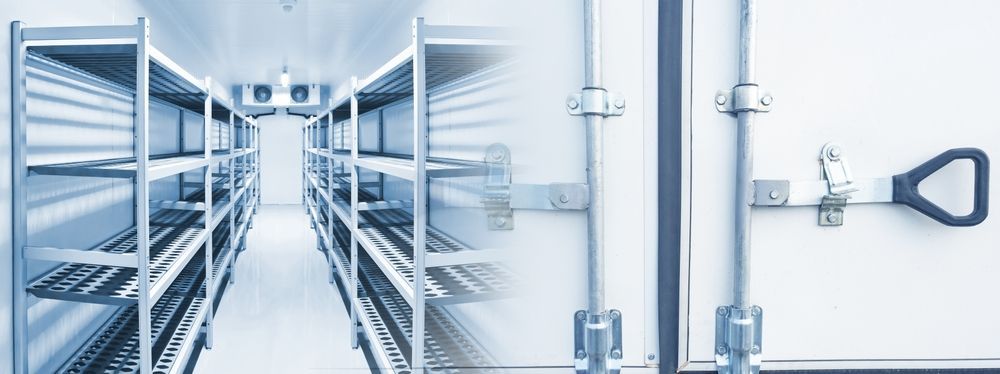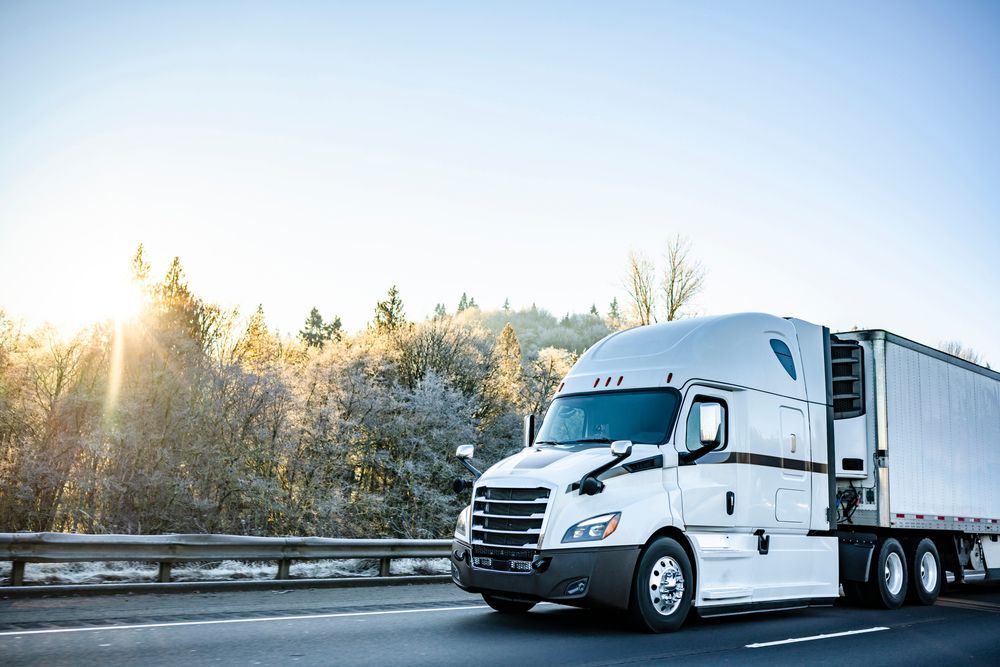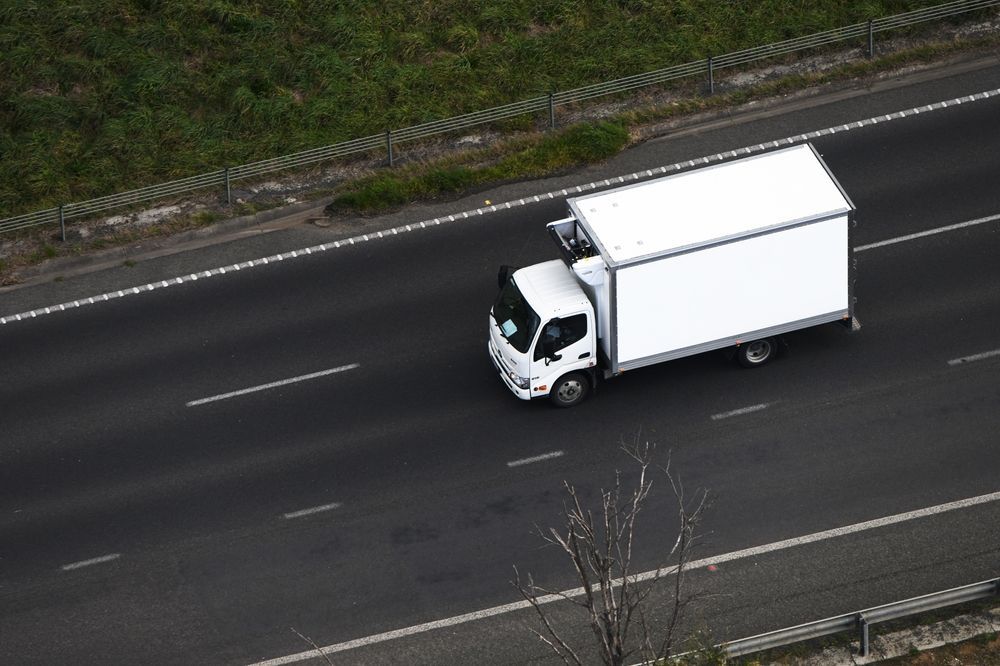LTL vs. FTL: When Does LTL Make More Sense?
Share this article:
Choosing the right freight option can make a significant difference in supply chain efficiency and cost. For shippers of temperature-sensitive goods, understanding the difference between less than truckload (LTL) and full truckload (FTL) shipping is essential.
This article explores the debate of LTL vs FTL, outlines when each is best, and explains why LTL can be the smarter choice in certain situations.

What Is the Difference Between LTL and FTL?
At its simplest, the difference between LTL and FTL comes down to how much space your freight occupies. In LTL shipping, multiple shippers share the same truck, each paying only for the portion of space used. This makes it a cost-effective solution for smaller shipments that do not require a full trailer.
FTL shipping, on the other hand, dedicates the entire truck to one shipment. It is best for high-volume loads, time-sensitive deliveries, or freight that requires minimal handling during transit. While FTL often comes at a higher cost, it provides direct delivery and fewer stops along the route.
For temperature-sensitive goods, both options can be refrigerated, but each carries unique advantages and trade-offs. Understanding these differences helps shippers choose the right approach for their business needs.
LTL vs. FTL: Key Factors to Consider
Several factors should guide your decision when comparing LTL vs FTL. Each has strengths depending on your priorities, shipment size, and delivery requirements.
Shipment Size and Freight Volume
Shipment size is the most obvious factor in determining whether to use LTL or FTL. If your freight fills only a fraction of a trailer, LTL prevents you from paying for unused space. Companies that ship smaller loads regularly benefit from the flexibility of moving freight without waiting to accumulate a full truckload. On the other hand, large-volume shipments that take up most or all of a trailer are more efficient when booked as FTL.
Cost and Budget Considerations
Cost is often the deciding factor for businesses evaluating freight options. LTL is typically less expensive for smaller shipments because the costs are shared across multiple shippers. This makes it a budget-friendly solution for companies trying to control logistics expenses. FTL may carry a higher upfront price, but for larger shipments it often delivers better value per unit shipped. Businesses should weigh overall shipping costs against their average freight volume to determine which option is more cost-effective.
Transit Time and Delivery Speed
Transit time can vary significantly between LTL and FTL shipments. Because LTL freight often makes multiple stops and may be transferred between terminals, delivery times are typically longer. FTL shipments move directly from origin to destination, making them faster and more predictable. If your shipments are time-sensitive, FTL may be the better option, while LTL is more practical when speed is not the top priority.
Temperature Control and Product Integrity
For cold chain logistics, temperature control is critical. Both LTL and FTL can provide refrigerated options, but each comes with different benefits. FTL offers greater control because the load remains sealed and untouched until it arrives at its destination. With LTL, products may be loaded and unloaded at transfer points, which increases handling but allows businesses to share costs. The key is to work with a carrier experienced in refrigerated transportation to safeguard product integrity regardless of shipment type.
When LTL Shipping Makes More Sense
Smaller, Frequent Shipments
Businesses that ship smaller volumes on a regular basis often benefit from LTL. Instead of waiting to accumulate a full truckload, shippers can move products more frequently without overspending. This helps maintain steady supply and reduces storage requirements.
Cost Sharing for Refrigerated Freight
Refrigerated transportation is expensive, but LTL shipping allows multiple businesses to share costs. By paying only for the space you need, you can access temperature-controlled shipping without taking on the full expense of a dedicated truck.
Regional or Multi-Stop Deliveries
If your products are headed to multiple locations within a region, LTL provides an efficient solution. Carriers that specialize in refrigerated LTL often design routes that serve several stops, ensuring your goods are delivered safely while controlling costs.
When FTL Shipping Is the Better Option
High Volume or Bulk Freight
FTL shipping is ideal when you have enough freight to fill most or all of a trailer. Large-volume shipments are more economical when handled as a full truckload, and there is less risk of damage from loading and unloading.
Time-Sensitive or Direct Routes
When speed is critical, FTL is the superior option. With no additional stops along the way, your shipment moves directly from point A to point B. This reduces transit time and ensures products reach their destination quickly.
Specialized Cargo Needs
Some freight requires dedicated equipment or conditions that are best met through FTL. Whether it is oversized cargo, fragile goods, or high-value shipments, having a dedicated truck offers greater control and security.
How to Choose Between LTL and FTL for Your Business
Selecting between LTL and FTL requires balancing cost, volume, timing, and product requirements. Businesses focused on cost savings for smaller shipments may prefer LTL, while those managing large, urgent, or highly sensitive loads often find FTL a better fit. Temperature control adds another layer of complexity. Both options can protect refrigerated goods, but LTL offers affordability while FTL emphasizes speed and exclusivity.
The best approach is to work with a logistics partner that provides both options. This flexibility allows companies to adapt as demand shifts and ensures they can balance efficiency, cost, and product integrity.
Partner With Experts for Reliable LTL and FTL Shipping
The decision between LTL vs FTL shipping does not have to be complicated. By partnering with a proven provider, you gain access to both flexible refrigerated LTL options and dependable full truckload services. At K2-Transportation, we help businesses protect temperature-sensitive products, meet compliance standards, and deliver reliably across the country. If you are ready to explore our refrigerated shipping solutions, our team is here to help.
To take the next step, get pricing and connect with our experts. With more than 30 years of industry experience, we are prepared to guide you through every logistics challenge while helping you choose the shipping method that makes the most sense for your business.




